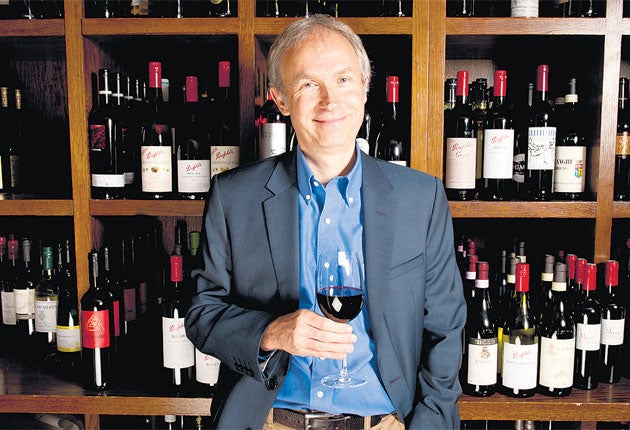Interview: 'We are masters of our own destinies'
Former PizzaExpress owner Luke Johnson tells Roger Trapp about the thrill of building a business

In these days of focus, Luke Johnson is that rarity, the man with his finger in many pies. Indeed, the analogy is quite apt, for if the wide-ranging entrepreneur has concentrated on one particular area, it is surely food businesses.
Kicking off with PizzaExpress, where he oversaw the expansion from only 12 sites to a nationwide chain of 250 outlets, he has owned the London restaurants The Ivy and Le Caprice as well as starting the Belgo and Strada chains. Even now, his investment vehicle, Risk Capital Partners, has a holding in the Giraffe restaurant chain as well as various other businesses.
Although clearly a busy deal-maker, he has also – in the spirit of someone from a bygone age – found the time to chair Channel 4 from 2004 to 2010 and is currently chairman of the Royal Society for the encouragement of Arts, Manufactures and Commerce. Moreover, he writes a weekly newspaper column on entrepreneurs and the latest of his several books, Start It Up, is due out in September.
On 4 April, as part of Australian wine company Penfolds' Vintage Year campaign, Johnson explained how his career effectively took off in 1993, when he took control of PizzaExpress with fellow Oxford graduate Hugh Osmond, and set about expanding it into what it is today.
That takeover came in the wake of the recession that accompanied the first Gulf War. So what parallels are there between then and now? The current situation has created all sorts of soul searching about the future of capitalism while recessions are generally seen as part of the economic cycle. But Johnson believes "this one feels less serious but longer". The crucial difference is that low interest rates mean that "people are muddling through because money is cheap".
So far, the markets appear to be backing the government's stance on the deficit, but if market sentiment changes, interest rates will rise and the environment will change. "Many companies felt like they were having a heart attack," Johnson says of the financial crisis that struck in late 2008. "Having been through a near-death experience like that, almost anything feels better."
It might be that dawn is approaching. But for the moment it seems as if the country is in the darkest hour, with households feeling worse off and unemployment likely to rise. So it is vital that as much as possible is done to encourage entrepreneurs. The government's attitude appears helpful, but more can be done, adds Johnson, citing the importance of role models to inspire enterprise.
"In the 21st century, it's going to be ingenuity and enterprise that's going to allow us to compete," he explains. Resourceful, restless individuals with a sense of urgency, those with a zest for adventure who do not easily accept defeat, are the key.
"I've always found when I talk to entrepreneurs about their lives that it's always the early days they remember most. They get bored when the company gets bigger," he adds.
Increasingly, such people are likely to be women, believes Johnson. Thanks to role models, such as the internet entrepreneur and guru Martha Lane Fox, more women are setting up in business. In addition, women are being assisted by developments such as the internet, which are enabling more businesses to operate – at least initially – from home and grant them more flexibly.
Married with three children, Johnson is aware of the downside of being an entrepreneur. "It doesn't suit everyone," he says. "It can intrude on your personal life and can be an obsession."
But he cites with approval Teddy Roosevelt, the US president of the early years of the 20th century who lived a fuller life than most and took the view that it was better to try things and fail as part of "a life well lived" than to settle for compromise. To succeed as an entrepreneur you have to become "battle-hardened", he says.
Accepting that entrepreneurs might not always earn as much as those in the corporate world, he adds: "People underplay the creative satisfaction and being master of your destiny."
This could be an especially auspicious time to act. A believer in the theory of "creative destruction" associated with the economist Joseph Schumpeter, Johnson says we should not underestimate our ability to invent our way out of trouble. To this end, he calls on would-be business builders to focus on areas that are growing while also being "alive to opportunities".
But entrepreneurs – resourceful as they are – cannot do it all on their own. The government needs to make it easier for them by such means as reducing regulation and improving incentives in areas like taxation, he maintains. "We need fast-growing businesses to take on lots of new people. We can't afford financially and socially there to be a generation of people who are permanently under-employed."
Join our commenting forum
Join thought-provoking conversations, follow other Independent readers and see their replies
Comments